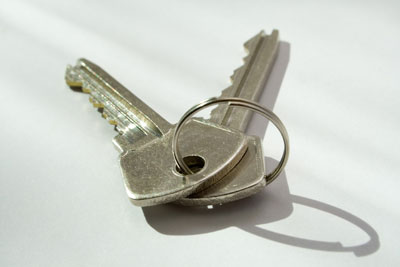What Happens When I Surrender My House in Bankruptcy?
Posted on Wednesday, June 24th, 2015 at 1:20 pm
Regardless of whether you file a Chapter 7 or a Chapter 13 bankruptcy, you have the option at the time of filing to keep or surrender your home. Many Northern Kentucky residents file bankruptcy especially for the purposes of keeping their homes, especially during the recent foreclosure crisis. However, others in the Northern Kentucky area file bankruptcy for the purpose of getting out from under crippling debts, which often includes the mortgage. People in that group will surrender their house in the bankruptcy, which means they give it back to the bank. This article talks about what happens when you decide to surrender your home.
The Process of Giving the Home Back
 When you file your bankruptcy, you will have the option to surrender the house. If you file a Chapter 7 bankruptcy, you will use the Form 8 to make this choice. If you file a Chapter 13 bankruptcy, you must fill in the appropriate section of the Plan to surrender. In either event, the filing of the bankruptcy gives the mortgage company all the information they need to know they can take the house back.
When you file your bankruptcy, you will have the option to surrender the house. If you file a Chapter 7 bankruptcy, you will use the Form 8 to make this choice. If you file a Chapter 13 bankruptcy, you must fill in the appropriate section of the Plan to surrender. In either event, the filing of the bankruptcy gives the mortgage company all the information they need to know they can take the house back.
However, the bank does not get to automatically take the house back. The automatic stay applies even to property you have surrendered in the bankruptcy, and will prevent the mortgage lender from taking the house without first asking the bankruptcy court for permission. Typically, mortgage companies will file a proof of claim and a motion for relief from stay with the bankruptcy court before it does anything else. You typically will not object to the motion for relief from stay if the debtor has surrendered the home, and the court will enter an order granting the motion.
After the mortgage company gets its order granting relief from stay, it still has to file a foreclosure action in state court. Even though you have surrendered the house, you will still get served with all the foreclosure paperwork. This is normal, and it does not mean you have to appear in court or file anything with the court. If you know you surrendered the property and have no intention of fighting to keep it, you can just throw all the papers sent to you in the recycling bin. Eventually, the mortgage company will get a judgment and a Master Commissioner’s sale will be set. The Master Commissioner’s sale is the date that the property will be taken out of your name and put into the buyer’s name.
Problems that Can Arise Before the Bank Takes the House Back
Many months can pass between the day you file your bankruptcy and the day the Master Commissioner’s sale takes place. During this time, you own the property and it is yours to maintain, regardless of whether you filed a Chapter 7 or Chapter 13 bankruptcy. This is both good and bad.
On the good side, since you own the house you are free to live in it up until the date of the Master Commissioner’s sale, and you can do so without paying anything to the mortgage company. This allows you to save the money you would normally pay toward rent or mortgage payments to give yourself a financial cushion going forward. Likewise, you can rent the property to someone and keep the rent payments (but make sure you are up front with the renter about the bankruptcy). However, if you choose this option, be ready to move your things quickly. If you enter the home after the Master Commissioner’s sale, you are trespassing.
On the bad side, you are responsible for maintaining the property and making payments to homeowner’s associations until the date of the master commissioner’s sale. If the city has an ordinance requiring the grass to be cut and they cite you for letting it grow too long, that citation is yours to pay. If the HOA makes an assessment against the homeowners after the bankruptcy but before the Master Commissioner’s sale, that is your assessment to pay. Remember that a bankruptcy only eliminates debts that exists before you filed, so debts like these that come up after the bankruptcy will not be covered by it. You cannot force the mortgage company to file the foreclosure quickly, and sometimes they wait a very long time.
Why it is Usually Better to Surrender the Home in Bankruptcy
There are other ways to allow the bank to take a home back. You could enter a short sale, or sign a “deed in lieu of foreclosure.” The problem with these solution is that they may be taxable to you. The IRS requires a tax paid for forgiveness of debt, so if the mortgage company writes off $100,000 of debt using these options, then you will owe the IRS taxes on $100,000.
A bankruptcy does not create a taxable event, although its effect is worse on your credit. Thus, you need to weigh your options prior to picking one of these alternatives.
Get Legal Advice Before Getting Rid of Your Home
Bankruptcy consultations are free, so take advantage of them. When Lawrence & Associates Accident and Injury Lawyers, LLC does a bankruptcy consultation, we do not charge you or ask you to sign a contract. If you decide to retain us, you can do so at a second appointment or at the first, whichever you choose. We take pride in representing Northern Kentucky and Greater Cincinnati residents, and we can advise you on how to best let go of a home that has become an albatross around your neck. Please give us a call today!









